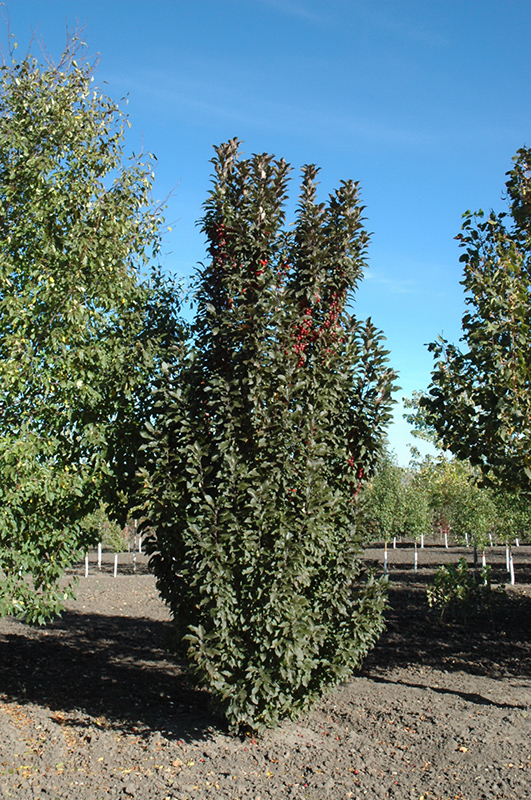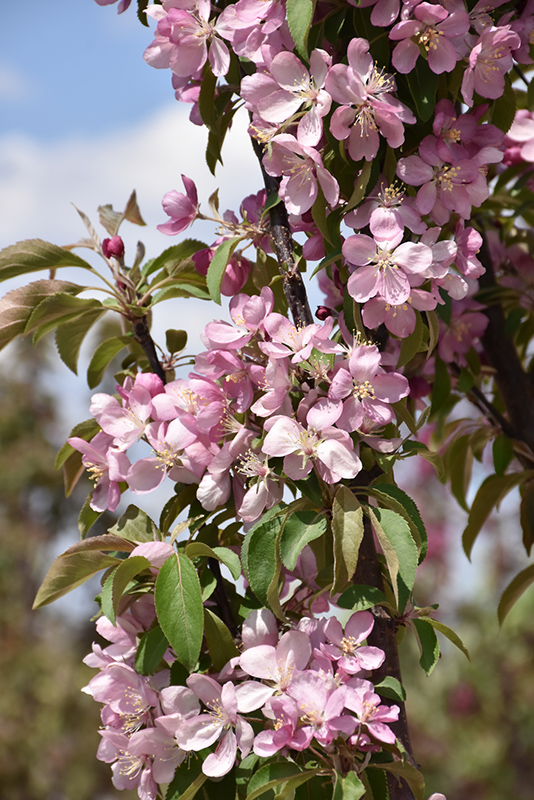Emerald Spire Flowering Crab
Malus 'Emerald Spire'
Height: 15 feet
Spread: 6 feet
Sunlight:
![]()
Hardiness Zone: 2a
Other Names: Roseybloom, Crabapple
Description:
A beautiful cultivar with a columnar habit, covered in stunning fuschia and white blooms in spring; fruit is light green, small and persistent, and adds ornamental value for fall and winter; good disease resistance
Autumn Enthusiasm
Fall is for planting! Did you know that fall is the best time to plant your deciduous trees and shrubs? Be the envy of all your neighbors with striking shades of reds, oranges, and purples. Plant something breathtaking today!
Ornamental Features
Emerald Spire Flowering Crab is draped in stunning clusters of fragrant fuchsia flowers with white overtones along the branches in mid spring, which emerge from distinctive crimson flower buds before the leaves. The fruits are showy green pomes carried in abundance from early to late fall. It has green deciduous foliage. The pointy leaves turn an outstanding gold in the fall.
Landscape Attributes
Emerald Spire Flowering Crab is a dense deciduous tree with a narrowly upright and columnar growth habit. Its average texture blends into the landscape, but can be balanced by one or two finer or coarser trees or shrubs for an effective composition.
This tree will require occasional maintenance and upkeep, and is best pruned in late winter once the threat of extreme cold has passed. It is a good choice for attracting birds to your yard. It has no significant negative characteristics.
Emerald Spire Flowering Crab is recommended for the following landscape applications;
- Accent
- Vertical Accent
- General Garden Use
Planting & Growing
Emerald Spire Flowering Crab will grow to be about 15 feet tall at maturity, with a spread of 6 feet. It has a low canopy with a typical clearance of 1 foot from the ground, and is suitable for planting under power lines. It grows at a medium rate, and under ideal conditions can be expected to live for 50 years or more.
This tree should only be grown in full sunlight. It prefers to grow in average to moist conditions, and shouldn't be allowed to dry out. It is not particular as to soil type or pH. It is highly tolerant of urban pollution and will even thrive in inner city environments. This particular variety is an interspecific hybrid.



